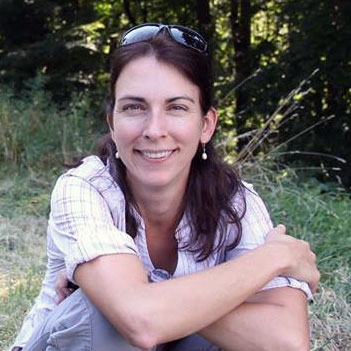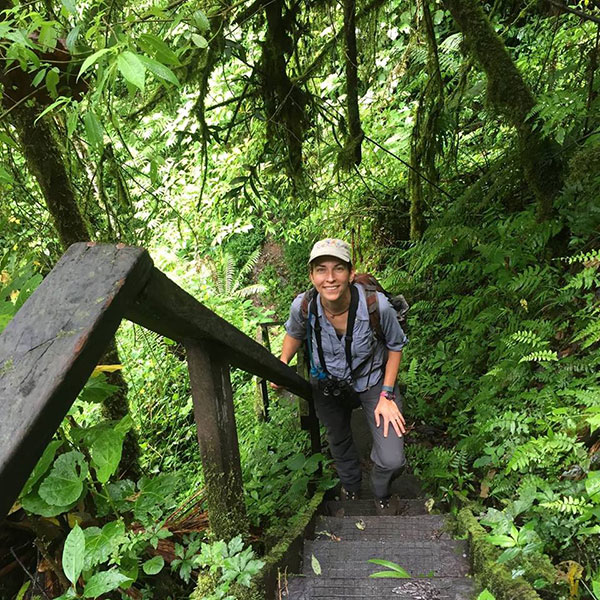
In scientific and educational settings, it is reasonable to say that the ability to comprehensively analyze problems, present positions with cognition of their context, formulate theses and hypotheses while accounting for the intricacy of the problems they address and draw logical solutions and conclusions from the analysis of problems are essential to success and academic growth.
However, these traits had only been silently worked toward in the scientific community at Florida State University until Emily DuVal, associate professor in the Department of Biological Sciences, joined the vocal pursuit of these initiatives established by FSU’s Critical Thinking Initiative or “Think FSU.”
Established in 2014, Think FSU is funded by the Florida State University Office of the Provost. The funding provides grants for FSU Faculty Fellows — faculty dedicated to actively incorporating the Valid Assessment of Learning in Undergraduate Education (VALUE) rubrics and critical thinking practices in their courses.
FSU Faculty Fellows receive grants of $5,000 annually under the condition that they incorporate these VALUE rubrics and give the Critical Thinking Assessment Test to their students at the end of each semester.
DuVal’s primary research interest is behavioral ecology, and she uses her grant to enhance her animal behavior course. In this course, she uses critical thinking challenges such as the “dear enemy hypothesis” in which students are expected to employ logical reasoning in explaining variables related to territorial interaction in animals.
DuVal believes critical thinking is instrumental in the enhancement of the sciences because it surrounding the process of developing hypotheses and using experiments to test them.
In fieldwork, DuVal actively incorporates data collection and makes sure that the data is analyzed as a part of the process of answering student questions. She said this active integration is integral as it increases students’ ownership of the research process and encourages them to engage with the questions and related data more deeply.
“I am trying to actively change my teaching to better instill these skills in students … framing critical thinking questions and employing them more effectively in highly applied situations,” DuVal said. “The hard thing about writing these critical thinking questions is getting to the heart of the content of the class in a creative way without confusing the students.”
Obviously, the pursuit of instilling critical thinking skills in college students is not a revolutionary goal. The purpose of this program, however, is to make it a central part of the curriculum. The Faculty Fellows who participate in this critical thinking initiative are ultimately looking for a return on this investment of class time. This is why they implement the VALUE rubrics and test students by semester with the CAT test.
“I am trying to change 20 to 30 percent of questions on my tests to focus more on using critical thinking skills,” DuVal said.
She also wants to utilize her testing protocols to track student progress related to critical thinking development to supplement the final CAT results. One outcome of her participation with the CAT is a change in her grading process.
“I am trying to grade in the exact way as the CAT,” she said.

DuVal explained that the revised rubric includes criteria for assessing critical thinking related knowledge as well as the assessment of formatting of the critiques. Since this standardization has infiltrated her test grading, DuVal uses scenarios on her tests that are graded in a more standardized manner.
The FSU Critical Thinking Initiative is ultimately striving to send graduates away from the program more equipped to handle problems in their professional environments that require critical thinking and to incorporate the use of critical thinking into every aspect of their thought processes and situational reactions.
DuVal facilitates this goal by asking students to take new information and “combine it with the understanding of other facts from the course to draw inferences; assess whether the facts support particular conclusions; and then lay out what else the student would need to better assess the situation.”
This not-so-revolutionary revolution of actively intertwining critical thinking strategies with the college experience is a mission, which might prove to be a turning point in the tide of education.
DuVal emphasized the importance of the Critical Thinking Initiative project for student learning and for the transformation of the faculty’s teaching experience.
“The critical thinking initiative is both for students and the faculty,” she said. “It changes the way we think about teaching.”
And, hopefully, it will change the way students learn.



